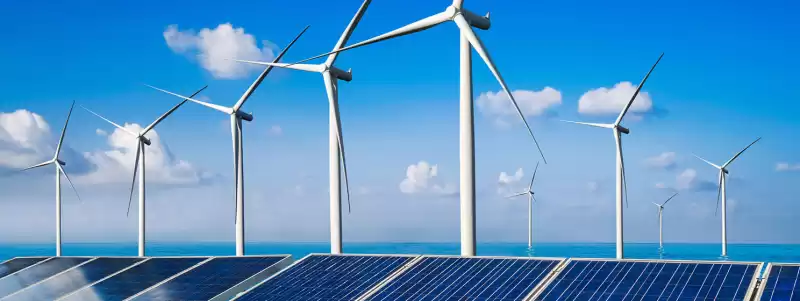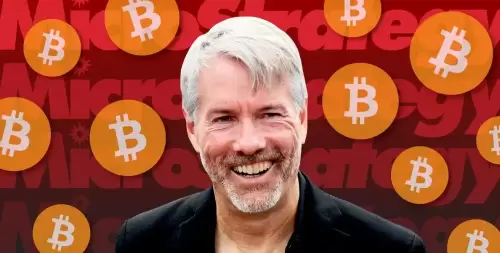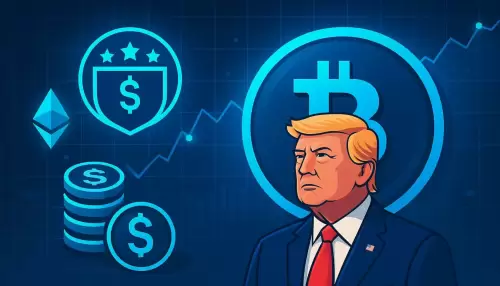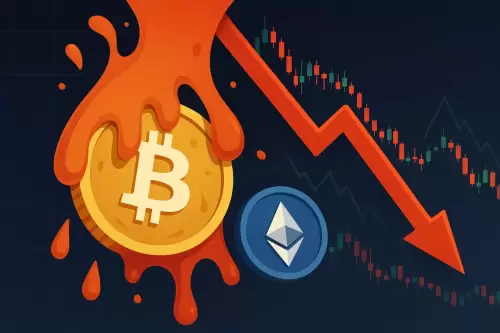 |
|
 |
|
 |
|
 |
|
 |
|
 |
|
 |
|
 |
|
 |
|
 |
|
 |
|
 |
|
 |
|
 |
|
 |
|
Cryptocurrency News Articles
BSV Association Makes the Case for Blockchain Technology at the World Economic Forum 2025
Feb 10, 2025 at 04:00 pm
The new managing director of the BSV Association (BSVA), Ásgeir Oskarsson, made the case for how blockchain technology can progress the green energy transition

Ásgeir Óskarsson, the new managing director of the BSV Association (BSVA), made the case for how blockchain technology can advance the green energy transition and enhance trust in business and government during a Financial Times (FT) panel at the World Economic Forum (WEF) 2025.
Speaking at the event on January 22, Óskarsson highlighted how blockchain, with its ability to streamline processes and introduce innovative business models, can help accelerate the energy transition and bolster local digital economies for global growth.
“Strong policy frameworks and collaborative efforts between governments, businesses, and innovators are essential to create an environment where these technologies can thrive,” said Óskarsson. “By leveraging blockchain and other cutting-edge technologies, we can foster trust, enhance transparency, and promote accountability while driving global innovation.”
Óskarsson was among several representatives of the BSV blockchain ecosystem to speak at the WEF 2025, a four-day event held in Davos, Switzerland, that brought together global leaders, innovators, and policymakers to shape global, regional, and industry agendas, including showcasing the transformative potential of technology for businesses worldwide.
During three days of panel discussions hosted by the FT, the proponents of the BSV blockchain covered topics ranging from the green energy transition to blockchain’s role in financial services.
From enhancing #cybersecurity to transforming economic – and even environmental – ecosystems, the true potential of blockchain is still yet to be realised.
This week we're at the World Economic Forum, sharing our vision for a better future with an audience of global leaders.…
Óskarsson, who was announced by the BSVA—the stewardship organization of the BSV blockchain—on February 1 as its new Managing Director, participated in a panel titled ‘A critical moment: Accelerating the energy transition – technology, policy, and financial mechanisms,’ alongside Kim Hedegaard, CEO of Power-to-X (PtX) Topsoe and Vaishali Nigam Sinha, Co-Founder of ReNew.
The panel focused on the importance of technologies such as blockchain, artificial intelligence (AI), and the Internet of Things (IoT) in driving scalability, efficiency, and energy conservation.
Blockchain scalability and sustainability When discussing how technology can play its role as part of the solution to the green energy transition, Óskarsson underscored how different innovative tech can work in concert to the benefit of business and government:
“Look at artificial intelligence, look at blockchain technology… Internet of Things, I think the beauty of it is that, when these three technologies come together, we can create not only innovative financial models or innovative business models for the companies running them, but you can actually make a massive difference on a local and global scale.”
Despite this optimistic outlook, certain technologies—AI and blockchain in particular—have been accused of being part of the problem when it comes to energy usage. For example, the energy consumption of BTC alone has been estimated at roughly equivalent to the energy consumption of Sweden and Thailand, while it’s estimated that the AI language model ChatGPT4 consumes enough energy annually to power over 40,000 United States households for a year or charge every electric vehicle in the U.S. twice.
When asked whether the advantages that AI and blockchain offer can offset their environmental dangers and power drainage, Óskarsson argued that “when you look at energy usage, what you should look at is also what you get for it, what is the output that you get for the energy usage?”
He suggested that, compared to the more recent surge in AI, blockchain has been around for a while, and as such, its energy usage and carbon footprint have been the source of much debate and discussion, “so, at this point, the sector is very much focused on sustainability.”
“At BSV blockchain, we’re very much focused on scalability and providing as much output as possible for as little energy usage as possible,” said Óskarsson.
He suggested that the solution needs to be a combination of initiative from the businesses themselves and a strong regulatory drive. Giving the example of the European Union, he pointed out that:
“In the EU, there’s very strict regulatory principle regarding blockchain. You need to provide your objective sustainability data that’s going to roll out in the next few months. That will give a lot of transparency and more trust and awareness about the situation. So, yes, there is energy usage, as there is with everything we do in life, but I think we should also look at what the output is.”
Specifically, he suggested that BSV can provide the scalability (output) that merits the energy input, and in this regard, there is some data to back up Óskarsson’s claim. In 2021, MNP, one of Canada’s largest professional accounting and business advisory service firms, found the BSV blockchain to be the most energy-efficient due to its unbounded transaction processing capacity.
As the panel progressed, the
Disclaimer:info@kdj.com
The information provided is not trading advice. kdj.com does not assume any responsibility for any investments made based on the information provided in this article. Cryptocurrencies are highly volatile and it is highly recommended that you invest with caution after thorough research!
If you believe that the content used on this website infringes your copyright, please contact us immediately (info@kdj.com) and we will delete it promptly.






























































